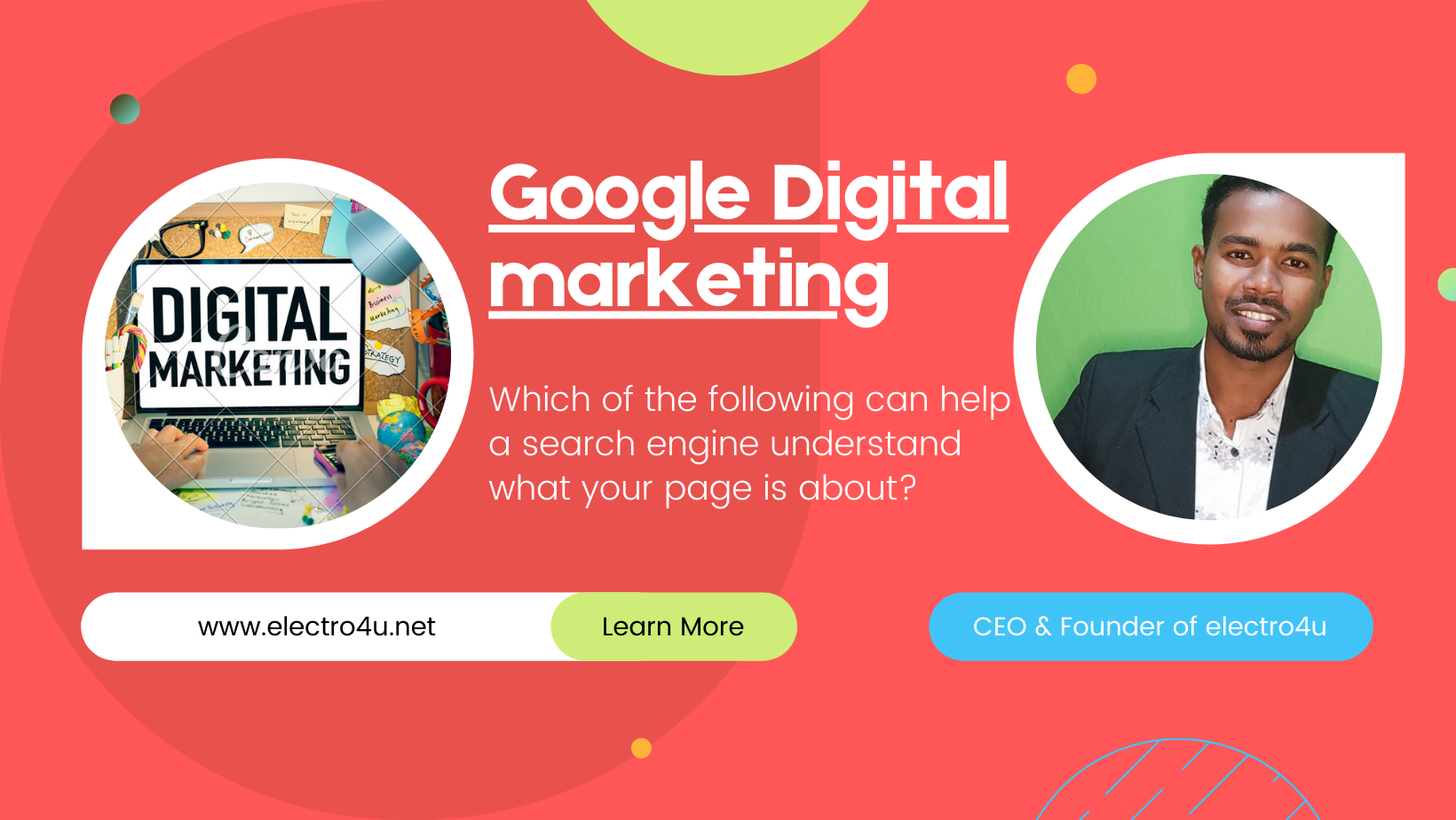
Which of the following can help a search engine understand what your page is about?
How to Help a Search Engine Understand Your Page Content
engines use a variety of factors to understand the content of a web page, including:
Introduction:
In the ever-evolving landscape of digital marketing, understanding the mechanisms that drive search engine results is crucial. One pivotal aspect is enabling search engines to comprehend the content of your webpage. This article sheds light on the elements that contribute to this critical process.
Body:
-
Relevant Content Creation: Creating high-quality, relevant content is the cornerstone of any successful SEO strategy. When your content is clear, informative, and aligned with the intent of the user's search, it significantly aids search engines in grasping your page's purpose.
-
Keyword Optimization: Strategic use of keywords and phrases related to your topic reinforces the context of your page. However, it's important to strike a balance; overuse of keywords (keyword stuffing) can be detrimental to your ranking.
-
Title Tags and Meta Descriptions: Title tags and meta descriptions serve as concise summaries of your page's content. Well-crafted tags and descriptions that accurately represent your content guide search engines in understanding the relevance of your page to specific queries.
-
Header Tags (H1, H2, H3, etc.): Organizing content with proper header tags not only enhances readability for users but also provides a clear structure for search engines. This aids in comprehending the hierarchy and flow of information on your page.
-
Internal and External Linking: Linking to other relevant pages on your website (internal linking) and reputable external sources (external linking) builds context and credibility. It also aids in establishing relationships between different pieces of content.
-
Image Alt Text: Alt text provides alternative information for images. Incorporating descriptive alt text not only improves accessibility but also provides additional context to search engines about the visual elements on your page.
-
URL Structure: A clear, concise, and descriptive URL structure is beneficial for both users and search engines. It provides a roadmap to the content of the page, aiding in understanding its purpose.
-
User Engagement Signals: Metrics like bounce rate, time on page, and click-through rate can provide insights into how users interact with your content. Positive signals indicate that your content is relevant and engaging, which can impact search engine rankings.
Conclusion:
In the realm of digital marketing, empowering search engines to understand the content of your webpage is pivotal for achieving visibility and relevance in search results. By strategically implementing these elements, you not only enhance the user experience but also ensure that your content is accurately interpreted by search engines. Remember, it's not just about creating content, but also about enabling search engines to connect it with the right audience. This synergy is the key to unlocking the full potential of your online presence.
MCQ. Which of the following can help a search engine understand what your page is about?
- The date it was published
- The number of images used
- The total number of words
- The title tag
ANS-> 4. The title tag

